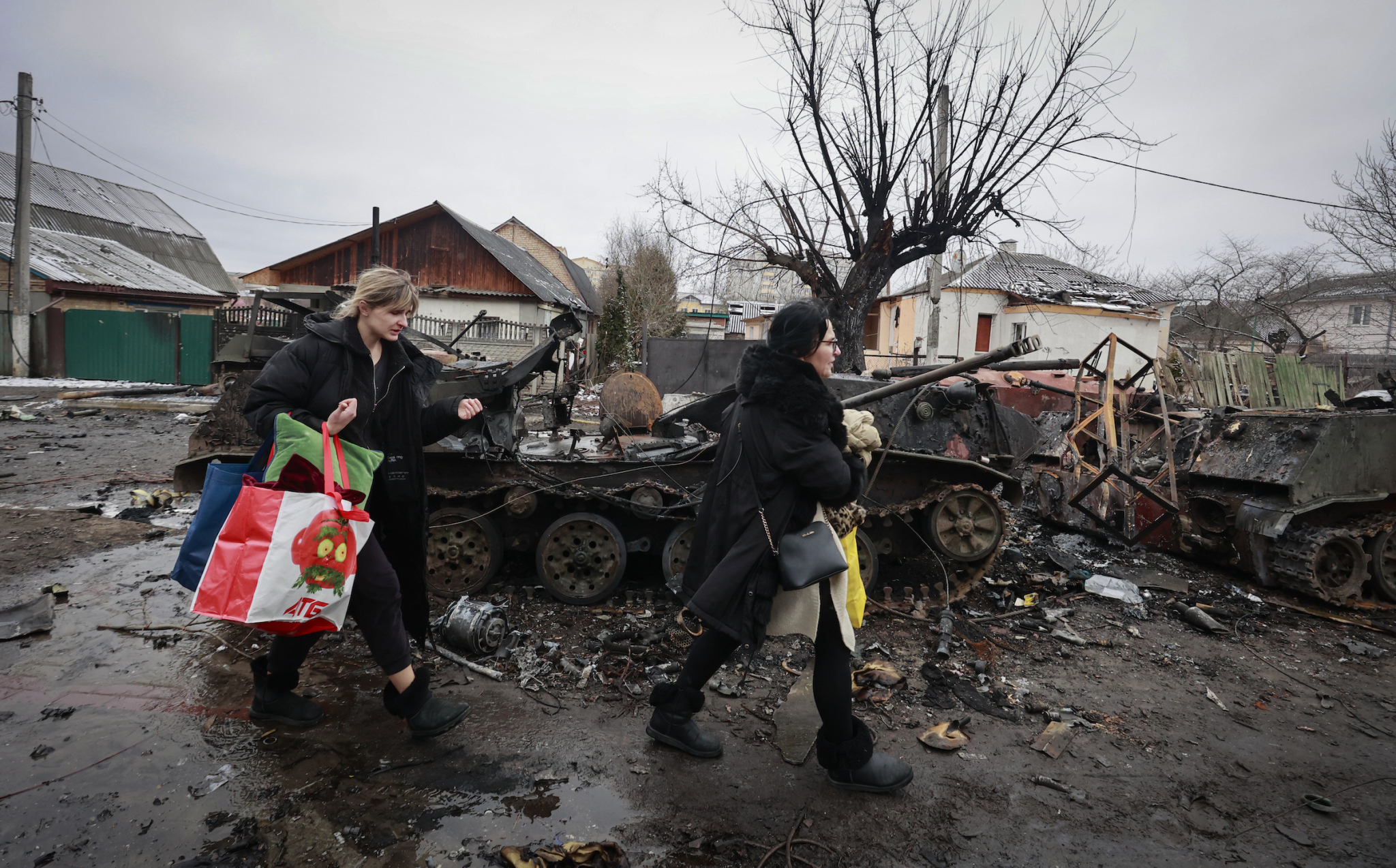Oleksiy Sorokin remembers the collective disbelief that Russia would attack Ukraine, and the moments of clarity that followed.
“We thought that Russia will escalate but also try to save face,” said Sorokin, who from 2014 to 2018 at the University of Toronto studied what he is now living through (political science and history).
Sorokin had already spent several long days and nights in the office of a new publication — a spinoff from Ukraine’s oldest English-language newspaper — when it became clear that “yes, probably something big is about to happen this night,” he said.
That was Feb. 23, when in a televised speech, the country’s president spoke in Russian to ask Russians not to start a full-scale war.
The 26-year-old journalist for the Kyiv Independent recalls a high-ranking diplomat in the country and a senior government official telling him the week before that there would be an invasion, “but we didn’t believe this.”
“Yes, the situation was building, building up to this moment as we understand it now. Many didn't want to believe,” he said in a series of voice messages to Canada’s National Observer from Kyiv.
(The Kyiv Independent was created by some of the Kyiv Post’s former editorial team, who were fired by the newspaper’s owner last November in a dispute over editorial independence.)
He went home at 3 a.m. and was restlessly covering the news when he got a link to the Russian president going live at 4 a.m., “and when I heard the speech, the start of the speech, I understood that it's war,” he said.
It has been non-stop ever since for the small team of journalists and editors, which churns out fast-moving updates on Twitter and its website often far ahead of international outlets.
Russia is now bombarding several Ukrainian cities as a miles-long convoy of its military vehicles masses outside Kyiv, seemingly bogged down by logistical challenges and resistance.
The U of T grad speaks matter-of-fact about Tuesday’s events — the shelling of residential areas in Kharkiv, the targeting of a television tower in Kyiv that also houses a Holocaust memorial, and the compounding traumas of people sleeping in bomb shelters for fear of attacks on their houses.
“The situation is brutal, and we're in a full-scale war, which has its effect on the everyday life of every Ukrainian,” he said.
And where once there was disbelief about it starting, now there is uncertainty about how it might end.
“The only honest answer to this question is that I don’t know, but it looks like it will be either the end of Putin or the end of Ukraine. I don’t see a middle ground here,” Sorokin said.
His outlet posted a witness video of the missile’s impact on Kyiv that garnered 448,000 views on Twitter in the hour before a BBC alert about the attack, which killed five people.
“We mostly report from our houses or bomb shelters. We have several people on the streets, but I'm not one of them,” Sorokin explained.
“I lack gear, I don’t have a helmet, I don't have a bulletproof vest, and obviously without that, nobody's going to let me go on the street and report from the street.”
He said that while it would be difficult to prepare anyone to live in a war-torn country, his schooling here “helped me in a different way. It helped me establish critical thinking, it helped me put words in sentences, and basically laid the path to my future journalism career.”
Disinformation is rife in any war, and Russian bots farms and other agents spreading fake news have amped that up hard in recent years.
“Obviously, the judgment is blurry now, because the news piles up and even government officials sometimes spread fakes,” Sorokin said. “We have to double- and triple-check information because right now, it’s vital to provide facts” and when people’s lives are on the line, there’s much more pressure, he said.
Morgan Sharp / Local Journalism Initiative / Canada’s National Observer






Comments